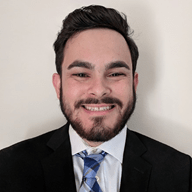By Alyssa Cartwright
The pre-operative suite felt abnormally chilly that Tuesday morning. Or perhaps it was the lack of hot coffee coursing through my body since I woke up too late to stop for my daily Starbucks latte before arriving to my Anesthesiology rotation at 6am. Either way, I had to power through because the team had a full day of surgeries ahead of us for which we needed to prepare.
I began my pre-rounds like any other morning, popping in and out of various pre- operative bays to introduce myself to patients, chat with them for a bit, and grab them anything they might need (warm blankets were a hot commodity that morning!) I was finally hitting my stride when I stopped by Bay 19. I quickly scanned the chart and saw that the patient inside was documented as a 46-year-old male presenting for hernia repair. As I entered the bay, I stood in front of the bed as the elderly nurse continued talking with the patient and their visitor about how the flow of the day will work, what to expect after the procedure, etcetera.
As I listened to this conversation, I observed the body language of both the patient and their visitor – they both seemed uncomfortable, beyond that expected of a person about to undergo surgery. I quietly continued to listen to the interaction and quickly realized the reason for their joint discomfort: the patient was a transgender woman and was being continually misgendered by the nurse. While of course this is an uncomfortable situation to begin with, matters were made worse when the nurse made the statement “okay gentlemen, and I use that term very loosely, let’s get ready to go” with a tone of disdain in her voice.
The patient and her partner visibly cringed at this comment and there was a tangible sense of awkwardness in the air as the nurse left the bay. I took this opportunity to introduce myself and sit down by the patient’s bed so we could chat. During my introduction, I ensured to state my personal pronouns in hopes that the patient would feel comfortable enough sharing theirs. This tactic seemed to work, as the patient sighed a breath of relief and introduced herself along with her pronouns as well. I immediately apologized for any discomfort she or her partner might have felt from the interaction with the nurse, and the patient quickly dismissed it, saying she was “used to it”.
I reflected on this encounter for a long time, growing more and more angry and deeply saddened the more I thought about it. While it is important to take generational differences into account, healthcare workers are tasked with the responsibility of prioritizing patient comfort and safety above all else. While the patient’s pronouns were not documented in the chart (which is an entire issue in and of itself), if this nurse had been paying closer attention to the tone of the room, she would have realized that the patient was extremely uncomfortable during the interaction and could have addressed it in the moment, thus likely rectifying any issue before it escalated.
The patient feeling uncomfortable and likely unwelcome given the snarky comment made by the nurse is entirely unacceptable, but what also concerned me deeply about this situation was the possibility that patient safety could have been compromised. If a patient does not feel that they can trust their healthcare team (whether it be for reasons of prejudice, bias, or anything else), there is a substantial chance that they will not be forthcoming with information needed for proper health management, which can in turn lead to a plethora of safety issues.
Although this encounter occurred several months ago, I find myself reflecting on it almost daily in my clinical rotations. While thinking back on this experience recently, I asked myself, “what interactions have I had with patients who made me uncomfortable?” I began to think of patients I had seen in the hospital who were imprisoned for dangerous crimes and even those who had extremist or aggressive political views. Then, a realization suddenly dawned on me: not only is it imperative to address our judgments and biases against patients in terms of their gender, sexual orientation, home life, or health history, but also regarding things patients have done that we do not necessarily agree with morally, such as the aforementioned political extremists or those with a criminal history. Now, before knocking on the door to see a new patient, I have been actively reminding myself to mind my biases and do my absolute best to stay open-minded and non-judgmental during the encounter no matter what, as that is our duty as healthcare workers — to respect the humanity of each and every patient we see. Maintaining this attitude and utilizing open and honest communication with our patients are some of the most useful tools we have as healthcare workers to nurture trusting relationships and ensure that patient comfort and safety are always being upheld.

Alyssa Cartwright is a third-year medical student at FIU Herbert Wertheim College of Medicine in Miami, FL. She is currently pursuing her decade-long dream of becoming an Emergency Physician to serve her local community in their most difficult times.
